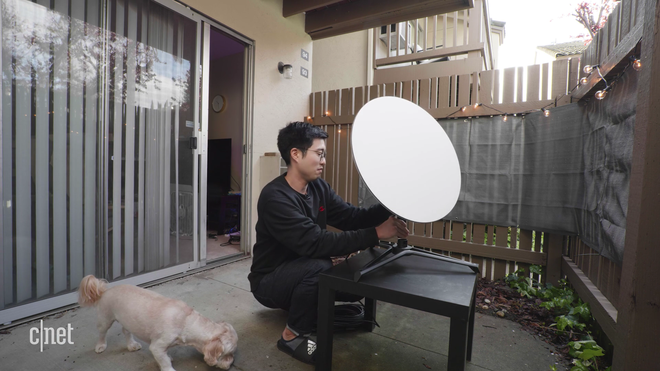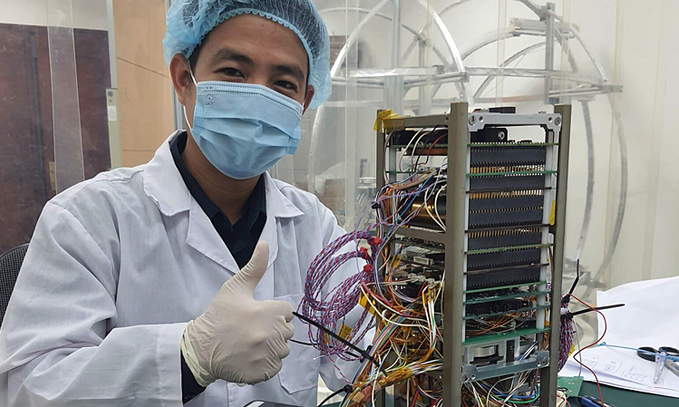Vietnamese satellite passes final quality test in Japan
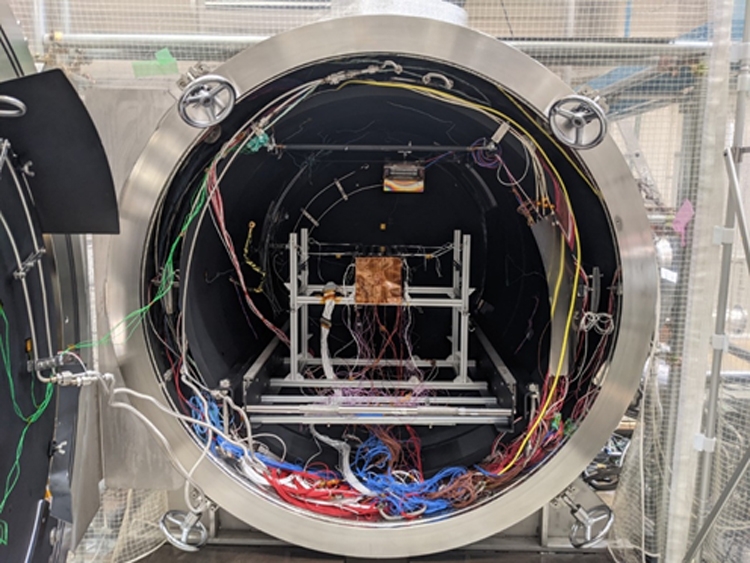 | |
|
The made-in-Vietnam sea observation satellite underwent vibration, shock and thermal vacuum testing in a simulated pre-launch environment, the last steps in its hardware development, at the Kyushu Institute of Technology in Japan, VNE reported.
The satellite weighs four kilos and belongs to the cubesat category, a type of miniaturized satellite for space research made of multiple 10 centimeter × 10 centimeter × 10 centimeter modules.
Le Xuan Huy, deputy general director of VNSC, said the NanoDragon satellite ended its tests on April 7, meeting all targets as required in terms of design and safety prior to launch.
The satellite is operating normally after being transferred back to Vietnam, awaiting its launch into orbit. Japan’s Epsilon rocket is expected to launch NanoDragon as part of the second "Innovative atellite technology demonstration" program within Japan's 2021 fiscal year ending March 2022.
The satellite was developed with the purpose of demonstrating it could use micro-satellite beam technology to receive the Automatic Identification System (AIS) signal to track and monitor activities at sea. The NanoDragon satellite is also designed to verify the quality of Japan's MEISEI satellite navigation and positioning system and a new advanced onboard computer developed exclusively for microsatellites.
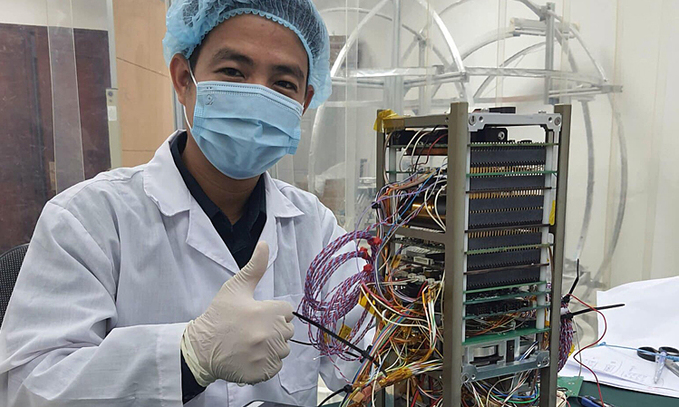 | |
|
Developed and built by the Vietnam National Space Center (VNSC), the satellite weighs four kilos and belongs to the CubeSat category, a type of miniaturized satellite for space research that is made up of multiple 10 cm × 10 cm × 10 cm modules, as reported by Vietnamnet.
The NanoDragon satellite is expected to operate in solar synchronous orbit at an altitude of about 560 kilometers from Earth.
Dr. Huy notes that the microsatellite is anticipated to operate in solar synchronous orbit (SSO) at an altitude of roughly 520 km. Its main task will be to integrate an Automatic Identification System (AIS) used for the purpose of tracking and monitoring vessels at sea. In addition, it will make use of an optical imaging device in order to verify the quality of the satellite posture controller while operating in orbit.
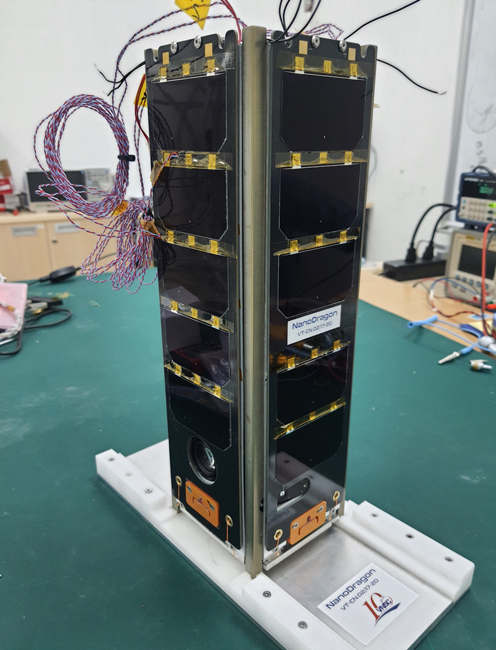 |
| (Photo: VNE) |
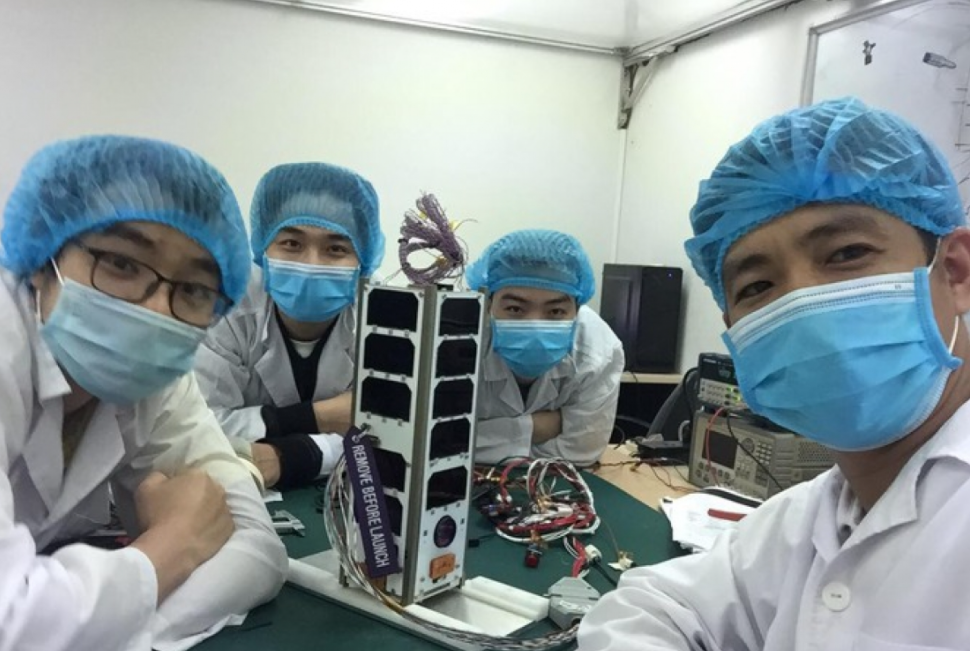 |
| (Photo: VOV) |
The satellite is the product of Vietnam's nano-sized micro-satellite project for the 2016-2020 period. Japan sent the 5- 5-kilogram Vietnamese satellite MicroDragon into space from Uchinoura Space Center in Kagoshima Prefecture, southern Japan, in January 2020. It was used to observe Vietnam’s coastline, evaluate water quality, locate fishery resources and monitor changes to serve aquaculture, detect cloud coverage and aerosols, collect ground-based sensor signals and transmit them to stations on Earth.
Vietnam is one of the countries in the world to be most affected by global warming and climate change. Space services and technologies will help the nation to gain a better understanding of climate change whilst supporting the process of monitoring and prevention of natural disasters, thereby contributing to mitigating their consequences. Vietnam is one of the countries in the world to be most affected by global warming and climate change. Space services and technologies will help the nation to gain a better understanding of climate change whilst supporting the process of monitoring and prevention of natural disasters, thereby contributing to mitigating their consequences.
Japan sent the 50-kilogram Vietnamese satellite MicroDragon into space from Uchinoura Space Center in Kagoshima Prefecture, southern Japan, in January 2019.
It was used to observe Vietnam’s coastline, evaluate water quality, locate fishery resources and monitor changes to serve aquaculture, detect cloud coverage and aerosols, collect ground-based sensor signals and transmit them to stations on Earth.
Vietnam sent its first indigenous satellite into space in 2013. The one-kilogram PicoDragon remained in orbit for three months. The country had launched four prior satellites, all made by foreign companies.
 | Philippines' new law cuts corporate tax, improves fiscal incentives system MANILA, PHILIPPINES - Media OutReach - 12 April 2021 - The Philippines has enacted a landmark law that cuts corporate income tax by as much ... |
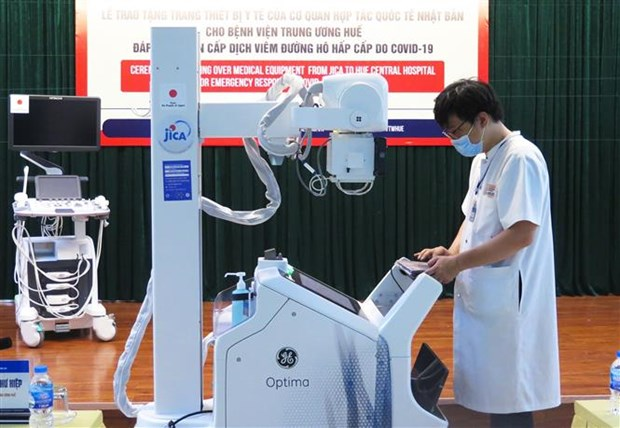 | Japan presents medical equipment to Hue Central Hospital The Japan International Cooperation Agency (JICA) on April 9 presented a number of medical equipment to the Hue Central Hospital to support the facility to ... |
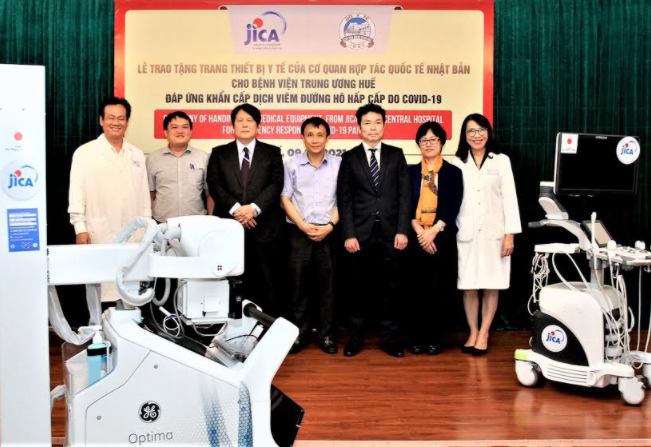 | JICA supports to improve medical service in Vietnam's central region The Vietnam Office of Japan International Cooperation Agency (JICA Vietnam) held today a ceremony to handover three medical equipment with a total value of 50 ... |
Recommended
 Viet's Home
Viet's Home
Hanoi, South Africa Strengthens People-to-people Exchanges, Expands Multi-sector Cooperation
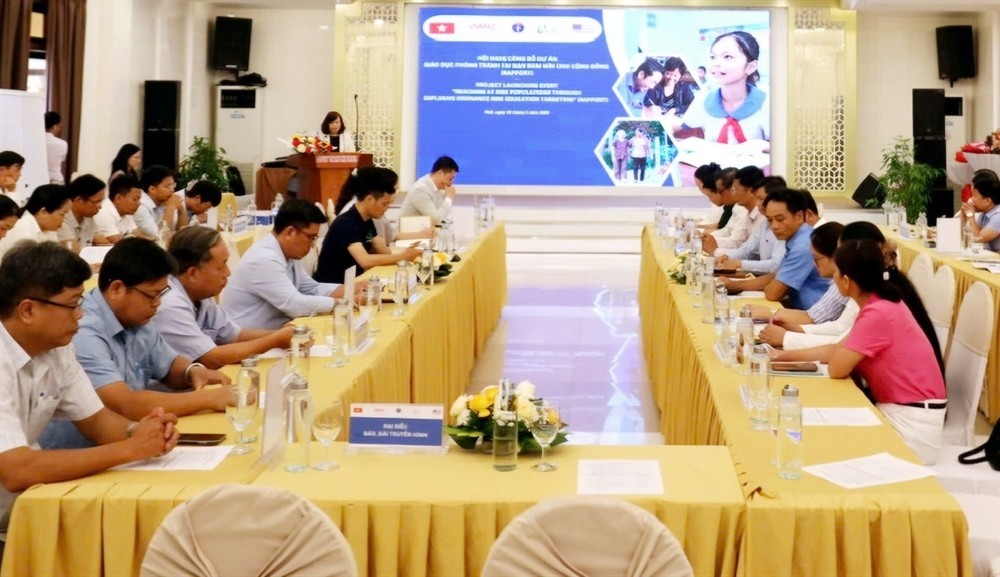 Viet's Home
Viet's Home
Hue City to Raise Awareness on Mine Accident Prevention
 Focus
Focus
Vietnam Leaves Imprints on the World Peacekeeping Map
 Viet's Home
Viet's Home
“Global Vietnamese Singing 2025” - Connecting Hearts Longing for Homeland
 Viet's Home
Viet's Home
Vietnam’s People's Public Security Force Actively Contributes to UN Peacekeeping Operations
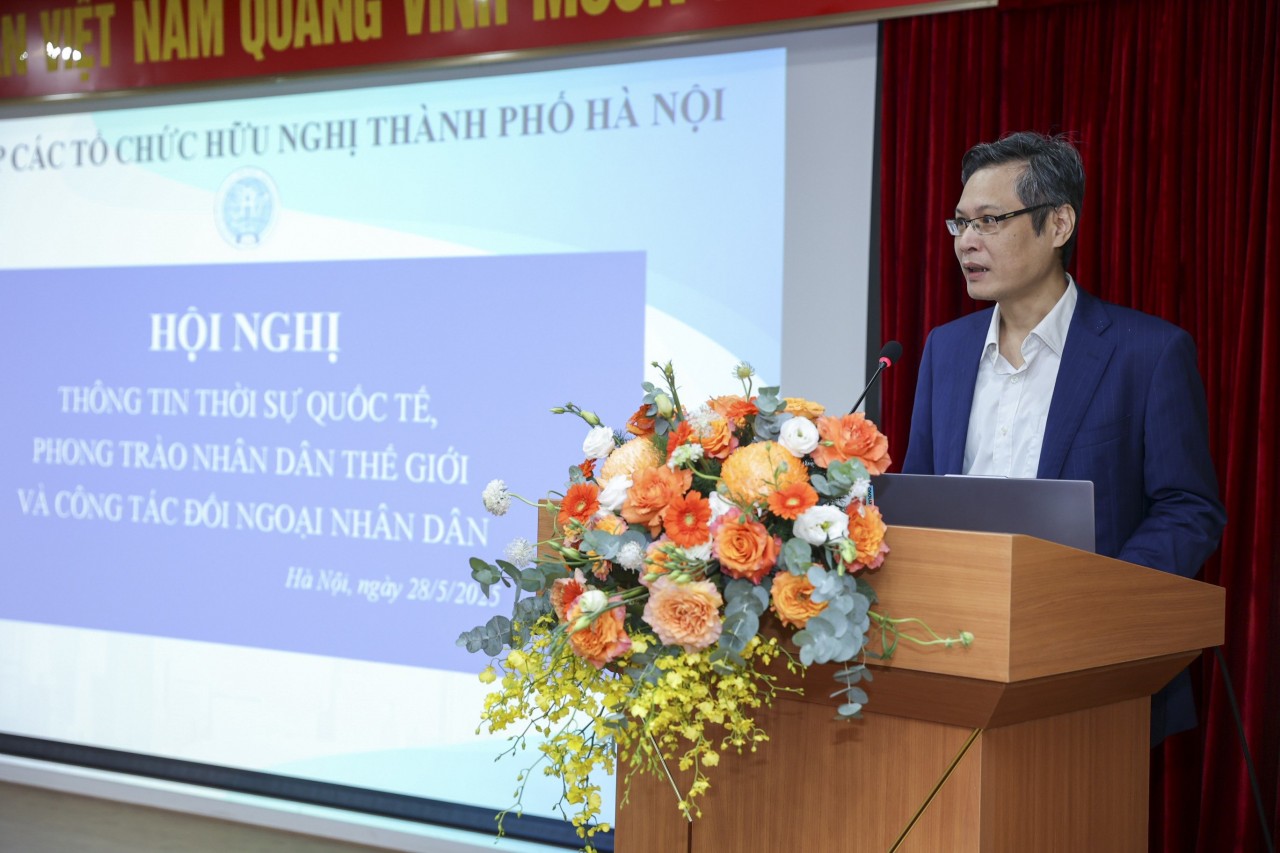 Viet's Home
Viet's Home
HAUFO Enhances Competence of People-to-People Diplomacy Personnel
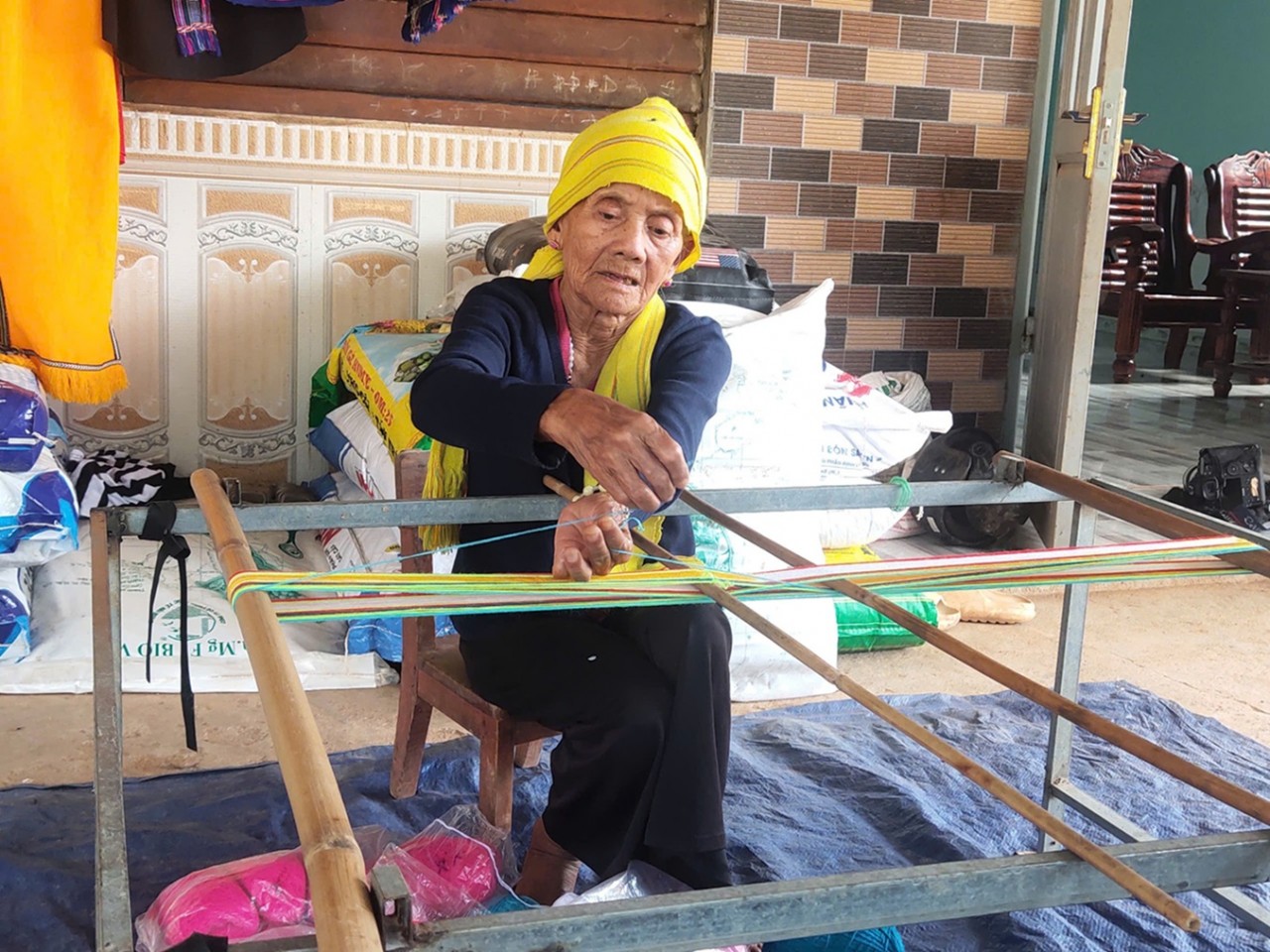 Viet's Home
Viet's Home
Hands that Reserve Da Long Brocade Craft
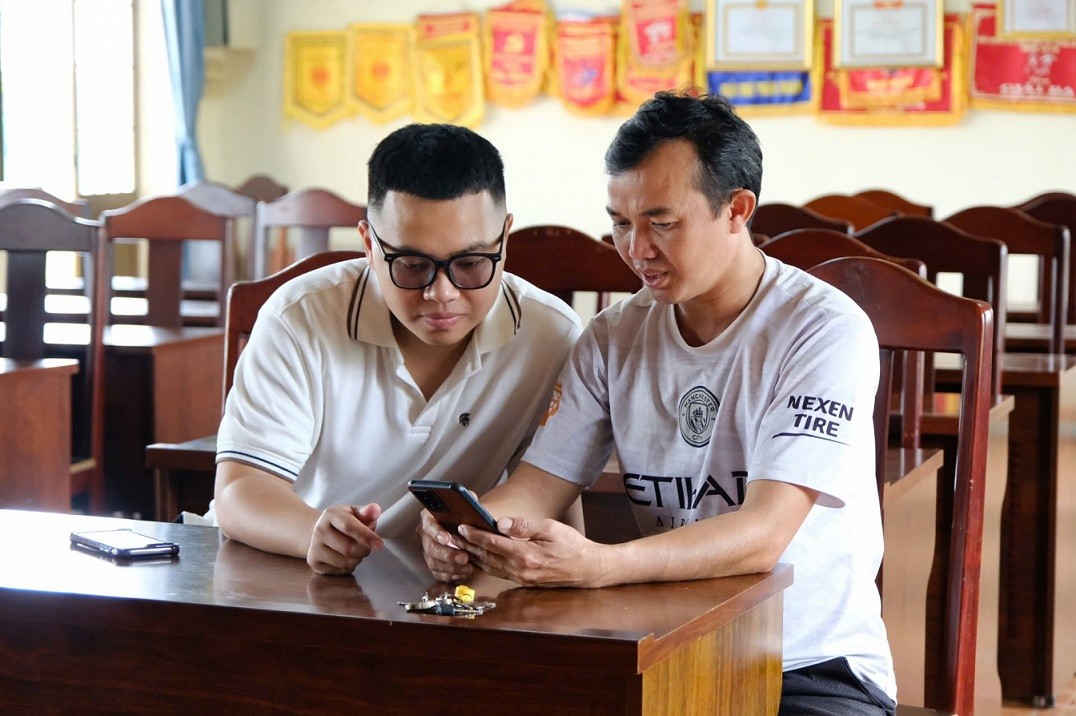 Viet's Home
Viet's Home

